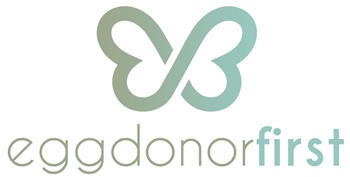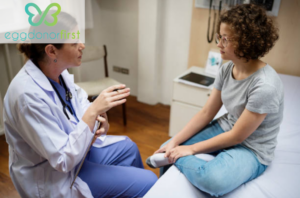
When it comes to egg donation, success doesn’t just depend on medical protocols. Your everyday choices matter too. From what you eat to how much you sleep, diet and lifestyle habits can significantly affect egg quality and donation outcomes. Whether you’re an aspiring donor or a curious intended parent, here’s how lifestyle plays a powerful role in the journey.
1. Why Egg Quality Matters in Donation
Egg quality is a key factor in successful fertilization and embryo development. Even if a donor meets all medical criteria, poor egg quality can reduce the chances of a viable pregnancy. That’s why agencies and clinics encourage donors to take care of their bodies well before the retrieval process.
To understand how egg donation works, check out our Egg Donation Process guide.
2. Diet: What You Eat Affects Your Eggs
Your ovaries are listening to your grocery list, no joke. A Mediterranean-style diet (rich in leafy greens, fruits, nuts, fish, and whole grains) is linked to better egg quality and improved fertility outcomes.
Source: Harvard School of Public Health – Fertility Diet Study
Foods that support egg health:
- Leafy greens & berries
- Omega-3s (salmon, chia seeds)
- Whole grains
- Lean proteins
What to avoid:
- Trans fats and processed foods
- Excess sugar and caffeine
- Alcohol and tobacco
Want to become a donor? Start your journey here.
3. Lifestyle Habits That Make a Difference
Egg donation isn’t just a procedure. It’s a commitment to wellness. The healthier your body, the better your response to fertility medications and the higher the chances of successful retrieval.
Source: CDC Preconception Health Guidelines
Best lifestyle practices for egg donors:
- Sleep 7–9 hours
- Exercise moderately
- Manage stress through relaxation techniques
- Stay hydrated
These tips are also covered in our FAQs for Egg Donors.
4. Supplements: Helpful or Hype?
While you should always consult your doctor first, some supplements are widely recommended for egg donors:
- Prenatal vitamins
- CoQ10
- Omega-3s and Vitamin D
Source: Journal of Assisted Reproduction and Genetics
No supplement can replace a healthy lifestyle, but they can support it. Learn more about egg donor eligibility here.
5. Preparing for Donation: When to Start
Even small shifts, like drinking more water or cutting back on fast food, can go a long way toward better outcomes. Learn how to get started on our Become an Egg Donor page.
Ideally, egg donors should begin making healthy changes at least 2 to 3 months before starting the donation cycle. This is the window when the eggs that will be retrieved are maturing.
Source: American Pregnancy Association – Egg Health
Conclusion: Healthy Choices, Stronger Impact
Egg donation is an extraordinary gift, and your wellness plays a big role in its success. By prioritizing nutrition, sleep, exercise, and mental well-being, you’re not just helping someone build a family. You’re also investing in your own health and empowerment.
Ready to make a difference? Take your first step with our Egg Donation Process Overview and see how your lifestyle can make a lasting impact.





